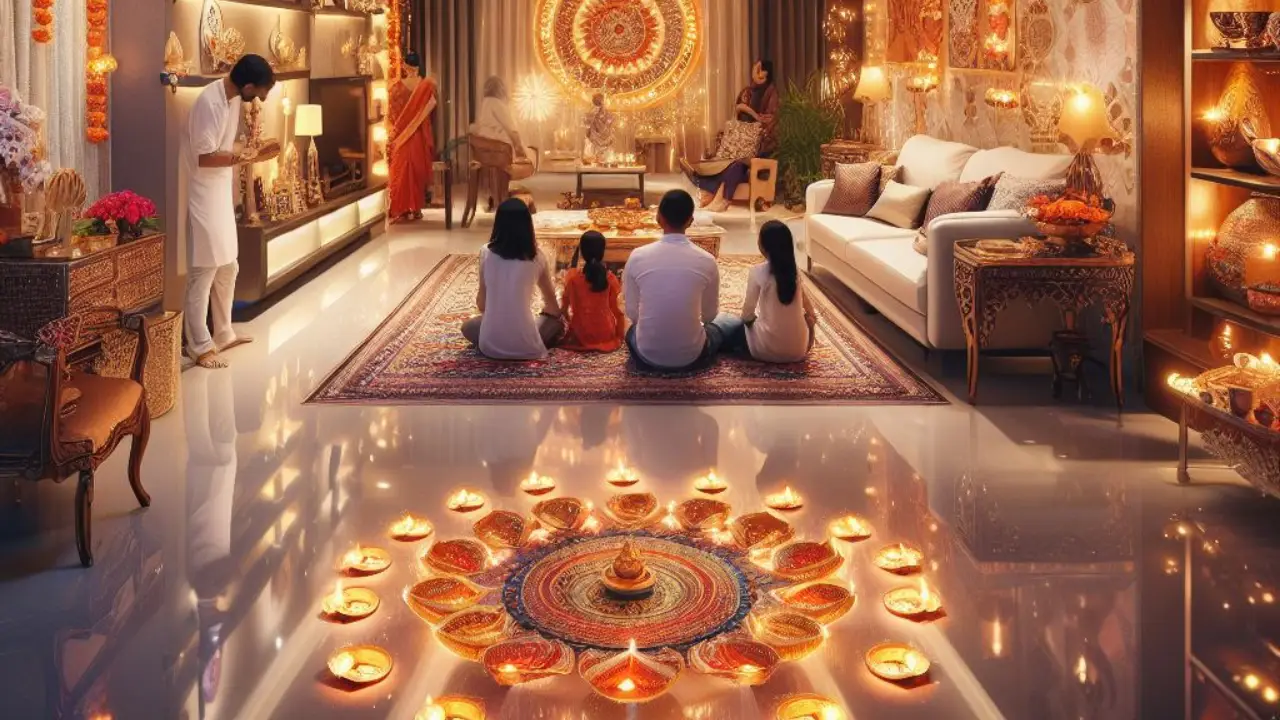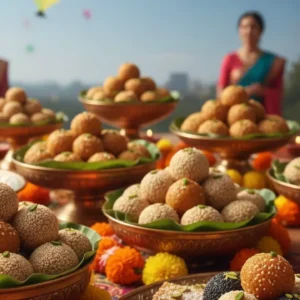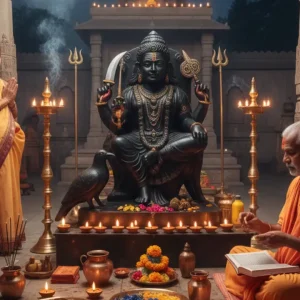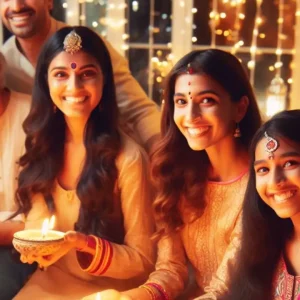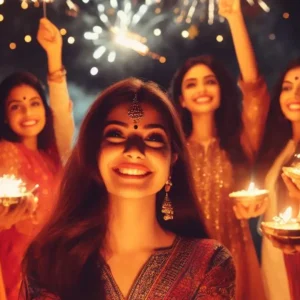The Festival of Lights, Diwali, is more than just a celebration. It’s a spiritual journey that unites people in India and around the world in a profound way. This guide will take you through the beautiful Diwali sacred traditions and rituals, helping you celebrate with devotion and meaning.
The Significance of Diwali
Diwali, also known as Deepavali, signifies the triumph of light over darkness and good over evil. The festival spans five days, with each day holding its unique significance and customs. Let’s delve into the traditions that make Diwali a remarkable celebration.
Day 1: Dhanteras – Welcoming Wealth
Diwali’s preparations begin with Dhanteras, a day where “Dhan” symbolizes wealth and “Teras” marks the thirteenth day of the lunar fortnight. People actively engage in cleaning their homes, purchasing new utensils, and offering worship to Goddess Lakshmi, the deity associated with wealth. This active participation signifies our active invitation of prosperity into our lives.
Day 2: Naraka Chaturdashi – Conquering Evil
The second day, Naraka Chaturdashi, actively commemorates the victory of Lord Krishna over the demon Narakasura. On this day, individuals actively partake in an early morning oil bath, symbolizing the active purification of both body and soul. It’s an active celebration of light triumphing over darkness.
Day 3: Diwali – The Main Event
Diwali’s third day holds the utmost significance. It’s the day when the primary Diwali puja actively takes place. Families energetically adorn their homes with earthen lamps, candles, and vibrant rangoli to actively invite Goddess Lakshmi. The night sky actively lights up with fireworks, signifying the active triumph of good over evil.
Day 4: Govardhan Puja – Honoring Nature
The fourth day is dedicated to Govardhan Puja, during which Lord Krishna actively lifted the Govardhan Hill to protect the villagers from rain sent by Lord Indra. People actively engage in crafting miniature hillocks from cow dung and actively worship them, displaying reverence for nature’s bounties.
Day 5: Bhai Dooj – Sibling Bond
Diwali sacred traditions and celebrations conclude with Bhai Dooj, a day actively dedicated to honoring the special bond between brothers and sisters. Sisters actively pray for their brothers’ well-being and actively apply a “tilak” on their foreheads, while brothers actively offer gifts as a heartfelt token of love.
The Common Thread: Lighting Diyas
One of the common threads that unite all the days of Diwali is the lighting of “diyas” (earthen lamps). Diyas symbolize the inner light that protects us from spiritual darkness. The warm glow of these lamps creates a peaceful, serene atmosphere in homes and temples.
Dressing in Traditional Attire
Diwali is a time to dress in traditional and vibrant clothing. Women often wear sarees, while men don kurta-pajamas or dhotis. The vibrant colors reflect the festive spirit and bring a sense of unity and joy.
Decorating with Rangoli
Rangoli, colorful designs made on the ground with colored powders, rice, or flower petals, adorns entrances to homes. It is not only a form of artistic expression but also invites blessings and well-wishes into the home.
Sweets and Savories: A Treat for the Taste Buds
Diwali sacred traditions are synonymous with indulging in delicious sweets and snacks. Traditional sweets like “laddoos,” “jalebis,” and “barfis” are prepared in every household. These sweet treats are exchanged with neighbors and loved ones, spreading sweetness and joy.
Crackers: A Controversial Tradition
While fireworks have long been a part of Diwali sacred traditions, their use has become a point of controversy due to environmental concerns. It’s essential to consider eco-friendly alternatives and celebrate with consideration for the environment.
Gifting: Spreading Happiness
Exchanging gifts during Diwali is a way of expressing love and goodwill. It could be anything from clothing and jewelry to home decor items. The act of giving and receiving gifts strengthens bonds.
Family and Togetherness
Diwali is a time for families to come together, whether they are under the same roof or connect virtually. Spending time with loved ones and sharing the festivities deepens the sense of unity and devotion.
Prayer and Meditation
Throughout Diwali, prayers and meditation play a significant role. These practices help in attaining mental peace, self-realization, and a deeper connection with the divine. Light a lamp, sit quietly, and meditate to feel the spiritual essence of the festival.
Eco-Friendly Celebrations
Modern times have brought an increased focus on eco-friendly celebrations. Use eco-friendly diyas and rangoli colors, and choose noiseless and pollution-free fireworks to preserve the environment while celebrating.
As you immerse yourself in the rich Diwali sacred traditions and rituals, remember that it’s not just a festival but a spiritual journey. Use this Diwali as an opportunity to connect with your inner light, spread joy, and unite with your loved ones.
Share your thoughts and experiences about Diwali in the comments section below. How do you celebrate this magnificent festival? What traditions are closest to your heart? We’d love to hear from you.

